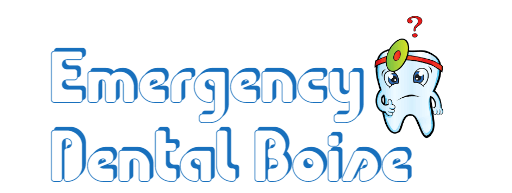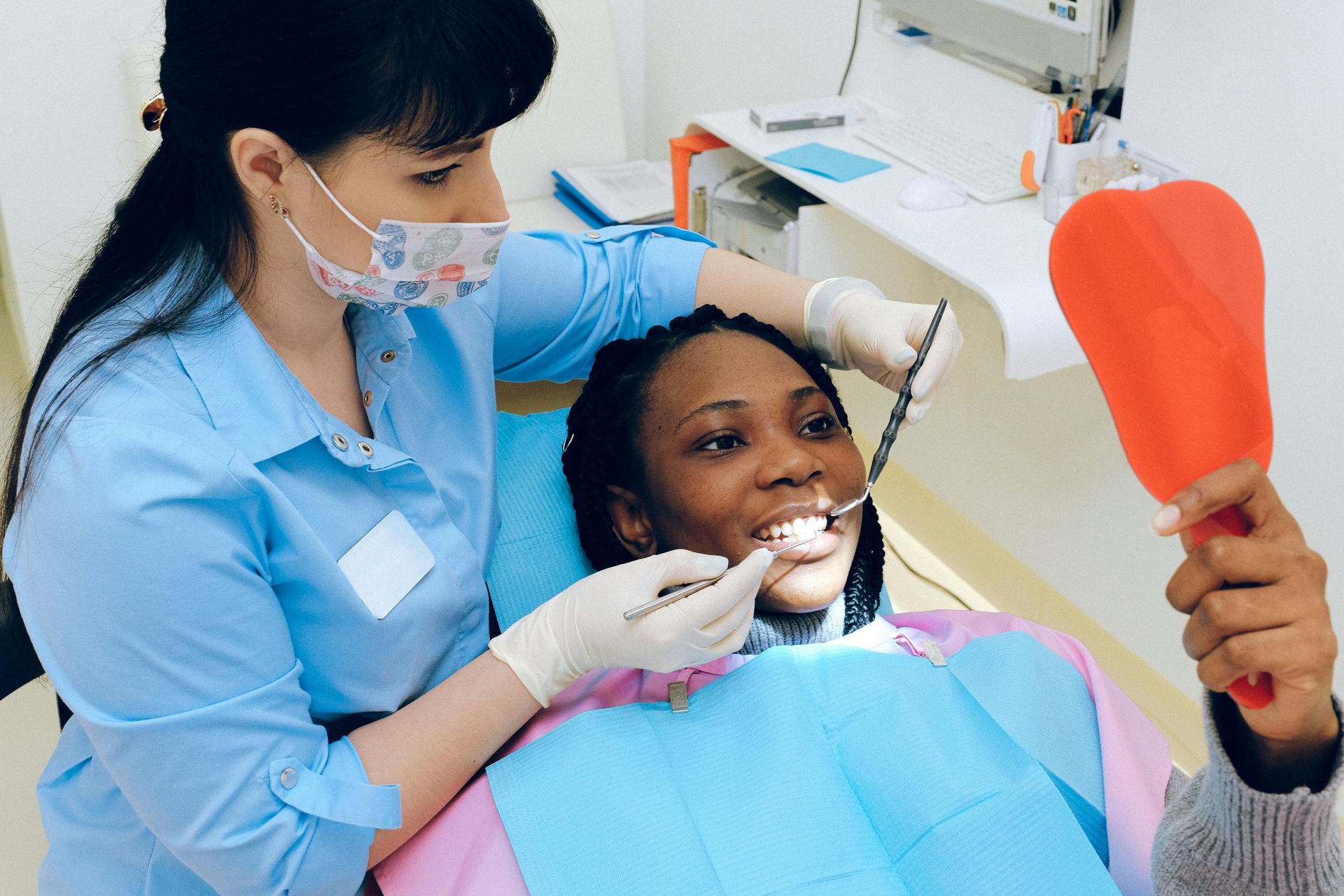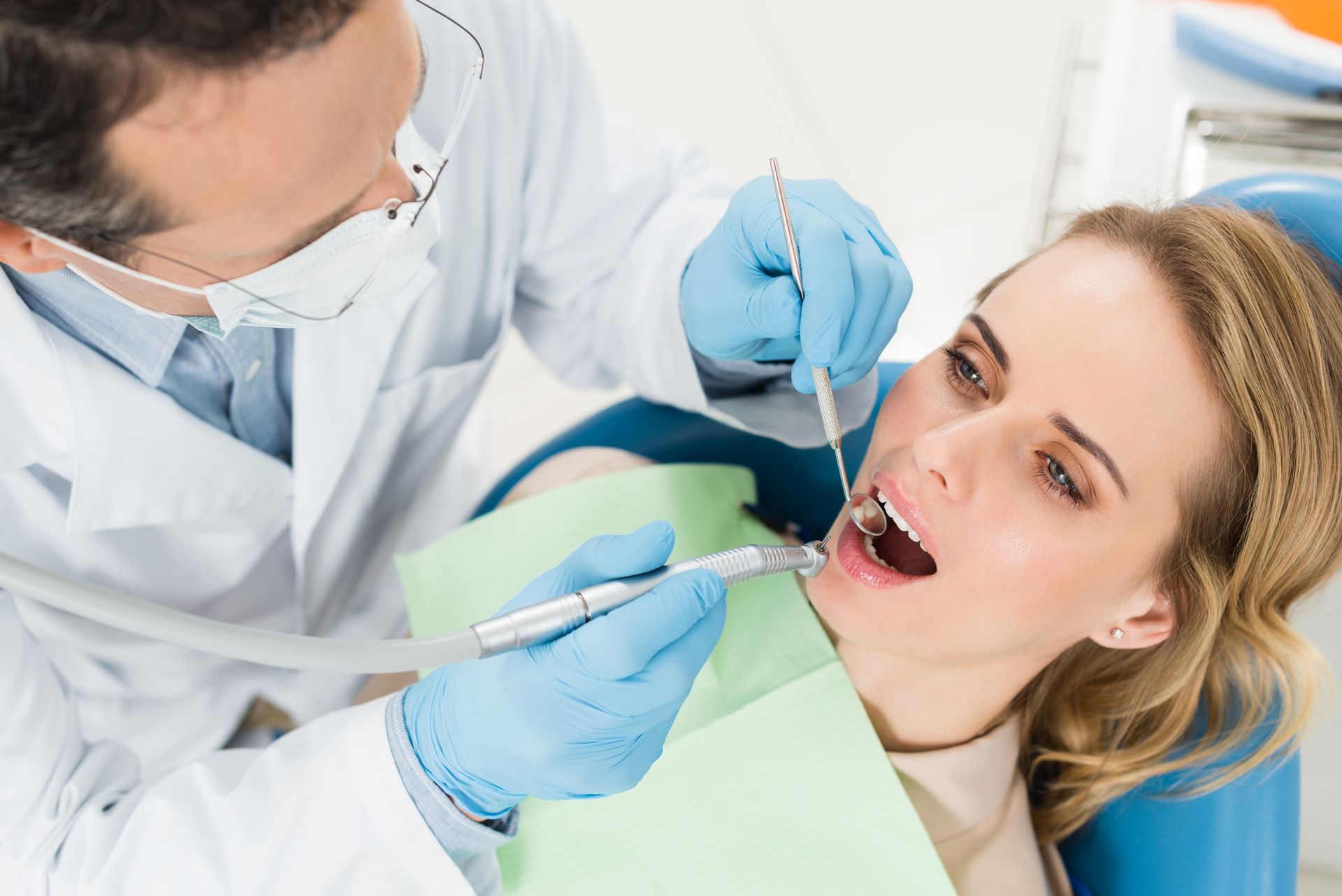Medical Conditions That Contribute to Rapid Tooth Decay | Boise Dentist
How to Manage Tooth Decay Caused by Underlying Medical Conditions | Emergency Dental Clinics Of Boise
Tooth decay is a common dental health issue that can have serious repercussions if left untreated. It is important to understand what causes rapid tooth decay in order to prevent it from happening and ensure good oral hygiene practices are maintained. Emergency Dentist Boise will explore the diseases that lead to rapid tooth decay, outline the risk factors associated with them, and provide suggestions for prevention.
The consequences of poor oral hygiene can be severe, ranging from minor discomfort to permanent damage or loss of teeth. As such, it is essential for individuals to be aware of any illnesses or conditions that may cause accelerated degradation of their enamel and dentin layers, leading to cavities or other forms of tooth decay. The aim of this article is to inform readers about how these diseases contribute to rapid tooth erosion as well as provide advice on how to best protect against them.
Dental Caries
Dental caries is one of the most common causes of rapid tooth decay. It is an infectious disease caused by certain bacteria that produce acids, which erode and weaken the enamel on teeth. Dental caries can be prevented with regular dental hygiene habits such as brushing and flossing twice daily, limiting sugary foods and drinks, avoiding smoking, and visiting a dentist regularly for check-ups.
Tooth enamel erosion is another major cause of rapid tooth decay. Erosion occurs when acid attacks the hard surface of the tooth and wears away its protective coating. Common sources of acid include carbonated beverages like soda or energy drinks, citrus fruits, vinegar-based dressings, wine, and other acidic foods.
In addition to reducing exposure to these substances, people should also seek medical treatment if they suffer from frequent heartburn or
GERD (gastroesophageal reflux disease), as it could be contributing to their tooth erosion problems.
Teeth grinding—also known as bruxism—is another potential source of rapid tooth decay in adults as well as children. Teeth grinding can wear down teeth over time due to excessive stress on them from clenching or grinding together during sleep or while awake.
Treatment options for teeth grinding include wearing night guards at night and/or seeking help from a mental health professional to address underlying stressors that may be causing this condition.
Rapid tooth decay resulting from dental caries, enamel erosion, and teeth grinding can have serious consequences if left untreated, so it’s important to take preventative measures like maintaining good oral hygiene habits or seeing a doctor or dentist when experiencing symptoms associated with any of these conditions.
Early diagnosis will enable quicker treatment and better outcomes for long term dental health.
Gum Disease
Dental caries, or cavities, are caused by bacteria in the mouth that produce acid and break down tooth enamel. While dental caries can cause rapid tooth decay, there is another major oral health concern: gum disease.
Gum disease is an infection of the gums and bone surrounding teeth due to a buildup of plaque on the surface of the teeth. This condition can lead to redness, swelling, tenderness, bad breath, receding gums, and even eventual tooth loss if left untreated.
Good oral hygiene habits, such as brushing twice daily for two minutes with fluoride toothpaste and flossing daily, can help reduce the risk of both dental caries and gum disease. Avoiding sugar in your diet is also key; when bacteria in the mouth encounter sugar, it creates acids that damage teeth faster than other types of food particles. Replacing sugary foods and drinks with water throughout the day will not only benefit your overall health but also keep your teeth healthy and strong.
Regular visits to the dentist are essential for maintaining good oral health since they can spot problems before they become severe. During these checkups, dentists use special tools to remove plaque from hard-to reach places on teeth while providing personalized advice based on individual needs regarding proper techniques for brushing and flossing at home as well as dietary recommendations that promote oral wellness.
As such, professional care plays an important role in protecting one’s smile against diseases like dental caries and gum disease, which could otherwise lead to rapid tooth decay.
Acid Reflux
Dental caries, also known as tooth decay or cavities, is one of the most common oral health issues among adults and children alike. The main cause of rapid tooth decay is a combination of poor oral hygiene habits and an insufficient production of saliva in the mouth.
Saliva plays an important role in keeping teeth healthy; it helps to reduce plaque buildup by washing away food particles from between teeth and neutralizing harmful acids that contribute to tooth decay. Acid reflux, which occurs when stomach acid flows back up into the esophagus, can also be a contributing factor for dental caries.
Acidic foods are particularly damaging to enamel due to their low pH level. This acidic environment causes minerals within the enamel layer of teeth to break down, creating holes in the surface and resulting in rapid tooth decay.
Some tips on how individuals can protect themselves against rapid tooth decay include:
- Regularly brush and floss your teeth
- Avoid high sugar snacks/meals
- Visit your dentist regularly for checkups and cleanings
By following these guidelines, individuals can help maintain good oral hygiene practices, promote saliva production, and prevent significant damage related to acid reflux that may otherwise lead to rapid tooth decay.
Diet And Lifestyle Factors
Recent studies show that nearly 80% of Americans are affected by tooth decay at some point in their lives. Diet and lifestyle factors play a major role in the rate of rapid tooth decay, as certain habits can increase its severity.
Oral hygiene is an important factor to consider when aiming to reduce rapid tooth decay. Brushing twice daily with fluoride-based toothpaste and flossing between teeth helps remove food particles and bacteria from the mouth, reducing acid levels that lead to cavities.
Certain sugary foods also need to be avoided or limited if one wants to prevent rapid tooth decay. Foods such as candy, soda, and other sweet treats should only be consumed in moderation due to their high sugar content; these items can create an environment for plaque buildup and erode enamel over time.
Similarly, acidic foods should be kept away from brushing times so that they don’t corrode the enamel even further. Regular dental checkups are another way to keep tabs on oral health, allowing dentists to identify any issues before they become serious problems.
During visits, it's essential for patients to disclose accurate information about their diet and lifestyle choices so that proper advice may be given accordingly. Following these tips will help ensure healthy teeth now and in the future.
Over-The-Counter Treatments For Rapid Tooth Decay
Over-the-counter treatments for rapid tooth decay can include various products that help to improve gum health and promote healthy diet choices.
Products such as mouth rinses, gels, and special denture cleaning tablets contain ingredients like fluoride and electrolytes that are designed to reduce the amount of plaque buildup on tooth surfaces.
Additionally, certain types of sugar-free chewing gum may be effective in preventing cavities by encouraging saliva production, which helps neutralize acids produced by bacteria in the mouth.
It is important to note, however, that while these over-the-counter solutions may provide some relief or prevent further damage to teeth, they should not replace regular visits with a dentist or hygienist who can provide professional care and advice when it comes to dental hygiene.
Brushing And Flossing To Prevent Rapid Tooth Decay
Brushing and flossing are essential elements of any solid oral hygiene regimen. Not only do they help to keep teeth clean and free from plaque, but regularly using these habits can also be a key factor in preventing rapid tooth decay.
The American Dental Association recommends brushing at least twice a day with fluoride-containing toothpaste and flossing daily to remove food particles that may cause cavities or periodontal disease.
Brushing helps reduce the amount of bacteria in your mouth, which is an important step for staving off rapid tooth decay. Flossing removes plaque buildup between teeth, helping to ensure no areas remain where bacteria can accumulate unchecked.
To maximize dental health, it's best to combine regular brushing and flossing with other preventative dentistry measures, such as professional checkups.
Are There Any Foods Or Beverages That Should Be Avoided To Prevent Rapid Tooth Decay?
Starchy snacks and acidic drinks are the two main suspects in rapid tooth decay. The combination of these two dietary items can lead to erosion, discoloration, and cavities that could all result in a weakened or damaged smile. For those looking to protect their pearly whites from accelerated dental decline, it is best to avoid consuming starchy foods like chips and cookies, as well as sugary drinks such as soda and juice, on a regular basis.
Alliteration aside, taking preventive measures by avoiding certain substances helps maintain strong teeth for years to come.
Check for more dental services.
Prevent Rapid Tooth Decay with Boise Emergency Dentist
Rapid tooth decay can be caused by a number of diseases, including the bacteria Streptococcus mutans, plaque, and gingivitis. The best way to prevent rapid tooth decay is to practice good oral hygiene habits, such as brushing twice daily with fluoride toothpaste and flossing once daily. Avoid sugary snacks and drinks, as well as acidic foods that can erode enamel.
Additionally, regular dental visits are necessary for early detection and treatment of any underlying conditions or infections causing rapid tooth decay. Though traditional wisdom has always been to brush more frequently when at risk of developing cavities, recent research suggests this may not be enough on its own; certain diets low in sugar content have been shown to be beneficial in reducing the severity of cavity-causing bacteria, which could lead to a slower progression of rapid tooth decay. Prevention is key, and understanding what causes it is essential in order to protect teeth from further damage.





